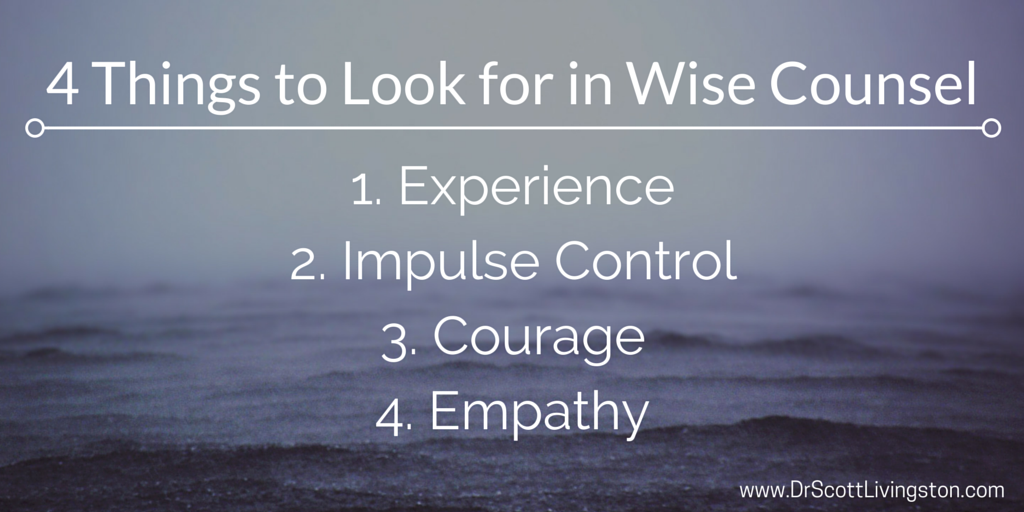Once upon a time right around now, in an organization not far from here, sits Hero, the leader of the whole thing. She is not having a very good day, although both the quantitative and qualitative metrics upon which her performance are measured look good. No, let's not fool ourselves, the numbers are actually great. Hero is in her element. She loves her role and she is really good at it. She has found her niche in life. Some of the articles she read recently in Scholarly Organization Journal would say Hero has found her calling.
By all accounts, Hero should be having a very good day. Indeed this should be a very, very good day.
She has a late meeting with an influential member of the board of directors, Distance. Distance oversees the selection, compensation, and retention of the executive team. The relationship Hero has with Distance is a good one, even though Hero has never felt like the relationship was that close. In fact, Hero has only ever met with Distance in board meetings and on executive retreats. She was really looking forward to finally meeting one-on-one with Distance and aligning goals for the upcoming year.
Yes, it really, really should have been a good day.
Hero, even started her morning with 15 minutes of quiet reflection using her favorite bible verse as the focus of her morning contemplation. She turned in her bible to Proverbs 3:5-6 which reads “Trust in the Lord with all your heart, and lean not on your own understanding, in all your ways acknowledge him and he will direct your path.” Because of the complexity of her organization, Hero often finds herself turning to her spiritual connections for wisdom in decision-making. Since she often feels the magnitude of hundreds of people whose lives are impacted by her decisions, connecting with her spiritual nature helps her to realize that she is not the center of the universe. Hero remembers attending a conference where she heard a speaker* say, "Humility is like a sock with a hole in it, it's realizing what is not there that really matters."
As Hero sat in quiet contemplation what really jumped out at her in this morning's reading was the instruction not to lean on her own understanding. This was quite a puzzling paradox. The instruction seems to say that Hero should not put her trust in or be supported by the structures of all that she had learned over the course of her 50 some odd years on earth.
As Hero focused her attention on these words “lean not on your own understanding” her mind started to drift….
I have always felt my business and my life are solid. My marriage of 30 years to Loveofmylife is rock solid. As for the workplace, I have been complemented by Boardchair that I show excellent critical thinking and a strong ability to discern between very viable, but distinctly different options when a decision is needed. My experiences have been formed from a very good academic pedigree that lead to an excellent job right out of school. Each opportunity I have been given in life seemed to build perfectly as a jumping off point for my next career opportunity. I really can’t believe it, here I sit three years into this leadership role really trying to fully appreciate what I have accomplished…no that's not right, why do I always do that? It is what the team has accomplished. If it wasn’t for their hard work and dedication to the mission we would be nowhere.
As she sat and stared at her journal where she keeps these reflective thoughts she got an overwhelming feeling of gratitude and appreciation for who she is and what she has been able to accomplish.
Then Hero remembered the words of her Coach who told her that when journaling, if her mind wanders, she should come back to the thought she was reflecting on, Lean not on your own understanding. She even remembered proper meditation technique. A good day, are you kidding?
Yes, this really should have been one of those.
Now time doesn’t allow us to tell you in any detail about the excellent workout that Hero had that morning, nor the healthy breakfast she enjoyed (perfectly balanced between carbs and proteins). We just really don’t have the space to discuss her commute to work where it seemed like she was the only person on the road, and not one car pulled in front of her to cut her off. Not one. When does that ever happen?
We wish there was time to tell you about all the productive meetings Hero had that day, the 20-minute nap she enjoyed in the afternoon, and the very productive afternoon session she had with her Coach. Time and space just don’t allow. Sorry. But all that aside...
Really and truly this should have been a perfect game of a day.
Oh yeah, Hero got in a 45 minute Hot Yoga class before her meeting with Distance.
Good Day? Ha.
And yet, to quote from one of Hero's favorite childhood books,
“This is an awful, no good, very bad day.”
You see, Hero had her late meeting with Distance, who told Hero her services were no longer needed by the organization. The board wanted to go a different direction. Sure there was certainly acknowledgment of all her positive results. Distance thanked her for all her effort. But in the end, the board decided they needed a new focus and direction (it is highly recommended, that if this was a real organization, who had a real board who made decisions like this, and who issued real stock; that you sell as fast as you can.)
Distance said the announcement would be made in 2 weeks and that they would like to throw a party for Hero. Yes, you read that right, the board fired Hero and wanted to celebrate it. "Who does that? “Hero asked her Coach when she called to provide the update on her meeting with Distance,
Indeed, this was not a good day.
"But one day does not a life make. Nor does what happens on any single day ever define us. It can have an impact for sure, but is in no way a full picture of who we are". —Coach
Now if Coaches are good at one thing, they are good at asking the right question at the right time. They are not very good at providing quotes to be used in a blog post.
Hero’s Coach sat with her in silence as Hero contemplated this day that should have been so good and yet felt not that way at all.
“It's not if something bad might happen in your life but when." Those are the words Hero spoke that broke the silence that enveloped the coaching session (they are also words that will end up some day in a blog post, quoted by Coach.) “The real question to be answered is, How am I going to respond?” Coach knew what Hero was saying, that leaders are often defined by their resilience in the face of setbacks. Having a positive optimistic long term outlook is what trust is all about.
And now you know why she is my Hero.
*This quote is from Dr. Jay Wood, author of Virtue Epistemology, taken from a lecture at Indiana Wesleyan University. Hero hopes she heard this as the speaker intended.





















